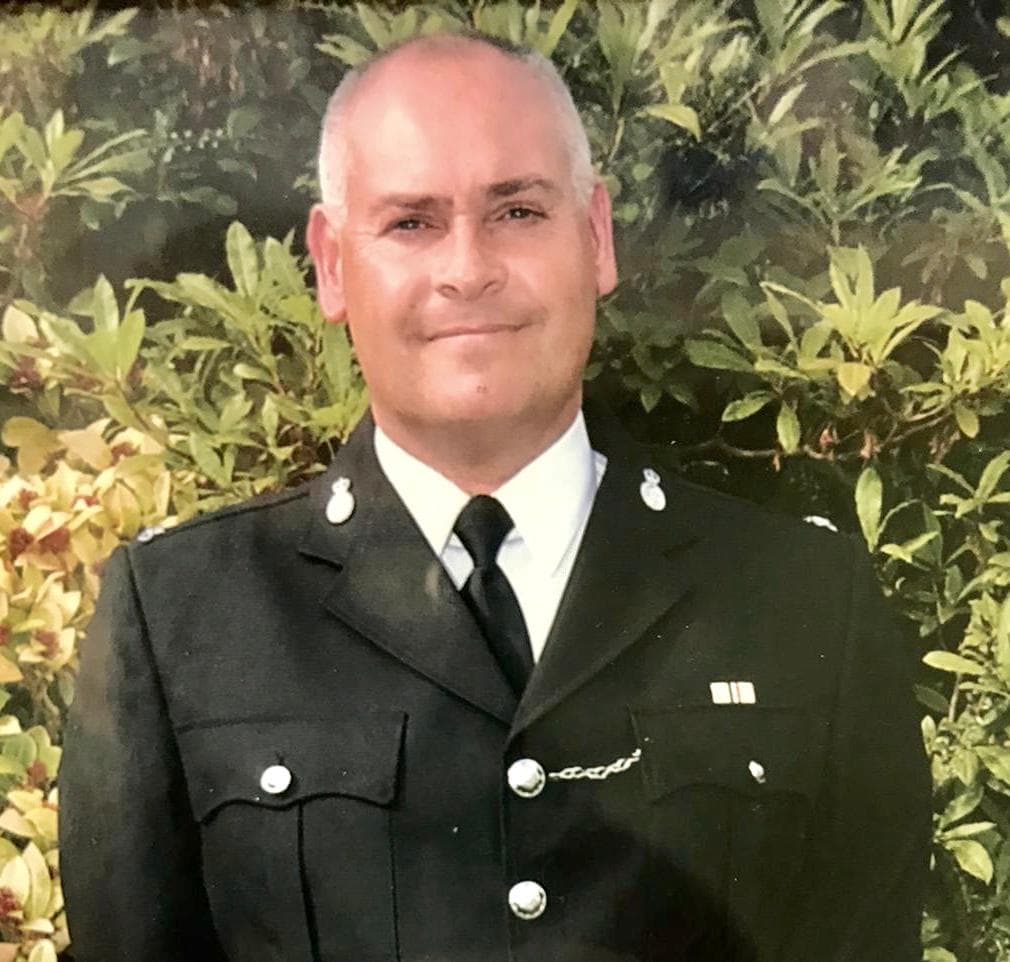
A dedicated family man died on his commute home after his “dream” two-seater sports car ploughed into an articulated lorry parked up in a lay-by on the A66 near Stainton.
Darryl Street, 59, an officer with the Civil Nuclear Constabulary at Sellafield, suffered “unsurvivable injuries” in the collision early on January 14 this year, an inquest heard on Tuesday.
The hearing in Cockermouth was told that the married father-of-three was driving home to Hunsonby, near Penrith, having finished a 12-hour night shift at 6am.
The weather was deteriorating towards Penrith — with it being dark and cold with rain, sleet and snow, as well as slush developing on the carriageway
Mr Street, a former officer with Cumbria police who also previously served as an RSPCA chief inspector for the Penrith and Keswick area, had been driving a grey Jaguar F-Type S.
On the eastbound side of the A66, he approached Baron’s Hill just past the turn for Flusco when there had been a “considerable loss of control” around an area open to the elements.
He collided with the rear of the static Scania LGV occupied by Mark James, a self-employed HGV driver, who had pulled over earlier on a journey from Flimby to Shap.
Mr James had done so to roll the cover off his trailer because of the worsening conditions and put on a pair of overalls, having left his engine running with all his tractor and trailer lights illuminated, the hearing was told.
Mr James was making a hot drink in the cab when the crash happened. He told investigators: “I recall a really loud bang and a bright light. It felt like an explosion.”
Three witnesses travelling on the A66 remarked upon the speed Mr Street had passed them.
Witness Megan O’Gorman had been on her way to Tebay when she was overtaken on a single stretch of carriageway.
She regarded his driving as “too fast” for conditions.
Benjamin Clark, of Broughton Moor, was travelling to Appleby, and said a car had overtaken him on a single carriageway after Threlkeld.
“I estimated the driver was travelling at between 80 and 100mph on the central part of the road which had slush or snow settled on it. I have never been passed by a car at such high speed on that road before.”
Sam Cook, a qualified mechanic from the Keswick area, said he was overtaken on a dual carriageway section.
“I remember thinking that it was a brave move from the other driver because they must have been travelling between 70 and 80mph. That particular car, in my opinion, is not good in conditions of snow and ice.”
Mr Cook said minutes later he came across the car that had passed him “buried” in the back of the HGV.
The hearing was told that crash investigators calculated Mr Street had travelled 47 miles in an hour which they did not consider “excessive”.
Neither was there any evidence of alcohol, drugs, or having fallen asleep at the wheel or use of a mobile phone, which he had forgotten to take with him.
Investigators considered him an “experienced” driver with no endorsements on his licence, although he had committed a speeding offence in a 30mph area some years previously and taken a driver awareness course.
His family regarded him as “careful and observant” at the wheel and said he could be “annoyingly slow”.
They said he had travelled the 114-mile round trip to work three to four times a week for two years and knew it well.
Data recovered from the Jaguar showed that there had been a significant loss of control approximately 89 metres prior to the point of impact and a decrease in speed from 79.2mph to 60.9 mph, the inquest heard.
Examinations found that the Jaguar’s two rear tyres were “well below” the legal minimum tread depth which would have caused a “considerable drop” in their ability to grip the road which was magnified by the weather conditions.
It was also “possible” that the speed of the car was a contributing factor in the collision, according to a police report.
The inquest heard from Mr Street’s family that he had treated himself to a “dream” Jaguar sports car having previously driven second hand cars.
His wife Joanne told the hearing her husband had owned the car for less than four months and it had its MoT the day before it was bought.
She remembered her husband’s “great strength” and resilience of character. He served as an Army reservist in Iraq, learned German and Arabic, was an active swimmer, kayaker and fell-walker, and was always looking for a new adventure.
He had hoped to retire to the north east, being a fan of Holy Island, Lindisfarne.
She said before leaving for his night shift, he had given her two kisses and told his son Jamie he was “the man of the house”.
“He put all of his energy, love, time and effort into raising the children,” she said: “Together we got our children to the adult phase in their lives and now he has left us. We have used all of his strength he has instilled in us to carry on.”
Assistant coroner Margaret Smith concluded that he died as the result of a road traffic collision and told the family “you have lost an incredibly special person.”








